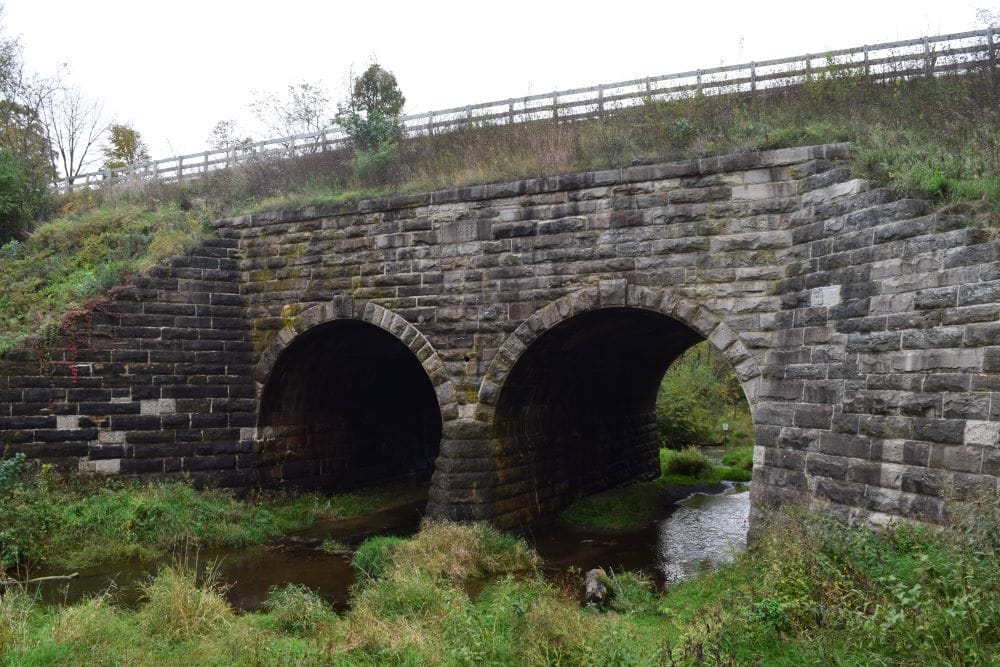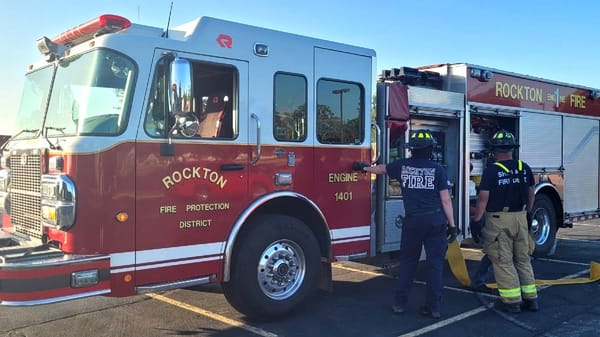Roscoe History: Remembering the Ilsley Family and the Flood of 1858
At midnight on June 3, 1858, disaster struck a Roscoe home, west of what is now the Stone Bridge.

On June 3, 1858, the pastor of Roscoe's First Congregational Community Church lost nine members of his family in one night.
Rev. Horatio Ilsley was born November 8, 1809 in Portland, Maine. He was the youngest of eight children born to Parker and Elizabeth Ilsley. Horatio spent his childhood in Maine and after he graduated high school he entered the Bangor seminary, graduating in 1837. Later that same year he was ordained in Cherryville, Maine, spending the next seventeen years preaching the Word of God at several churches in Maine.
He married Susan Ulmer Merrill on April 4, 1840. Mrs. Ilsley was born April 3, 1814 in Dixmont, Maine, the daughter of James and Dolly Merrill. She was the third of nine children.
Horatio and Susan had eight children. The oldest, Horatio Thayer Ilsley, was born in 1841, Charlotte Elizabeth Ilsley, better known as Lottie, was born in 1843, Mary Ellen Ilsley was born in 1845, Orin Woodford Ilsley came along in 1847, Edward Payson Ilsley, better known as Eddie, was born in 1849, Susan Caroline (Susie) was born in 1851, Annie Louise Ilsley was born in 1853 and the baby, Charles Merrill Ilsley, was born in 1857.
In 1855 the Ilsley family moved to Illinois. Rev. Horatio was the pastor in churches at Belvidere, Dixon, and Beloit before moving to Roscoe, becoming the pastor of the First Congregational Community Church. The Ilsleys quickly became beloved members of this community. When their eldest son, Horatio, moved to Milwaukee in 1857, the community counseled Mrs. Ilsley as she worked through the difficulties of dealing with her first born son moving away. When he returned for a visit at the end of May 1858, the community threw a party welcoming the teenaged boy home. Little did they know what tragedy would strike the entire Ilsley family, just days later.
The spring of 1858 had been an unusually wet season. For weeks the rain had swollen the waterways, causing various issues with the roads and railroads all over Winnebago County. But, none of these problems were deemed serious as they were easily fixed.
June 3rd of 1858 changed all of that. There had been torrential downpours all day. The creek had become so swollen, the water could not pass through the culverts of the railroad, near where the 1882 double-arched Stone Bridge was later built over the South Kinnikinnick Creek. Debris was causing further problems and the water accumulated in a large body east of the railroad embankment. Before long the pressure became too intense. In an instant, the culvert was swept away, along with about 150 feet of the railroad embankment. The water rushed into the village, destroying houses, stores and stables.
The Palmer and the Welsh families were not home when the flood hit. The Belle Cottage, a home for young ladies who were going to school here, was usually full of boarders but the school had just begun their summer break so the cottage was empty. These three homes were washed away. The Postlethwaite family were home sleeping. Luckily, their son Hartley woke just in time to warn the family of the impending doom. They were able to take refuge upstairs while the water broke in the back door, washing away pots, iron kettles and heavy furniture through the house and out the front door. The family and their house survived.
The Ilsley family, unfortunately, was not so lucky. Believing that the storm would not be too bad, most of the family retired to their rooms for the night. The water hit the house just before midnight. The last thing Rev. Ilsley heard was the screaming of his wife. The Reverend, who had lost a leg at 5 years old, was swept out of the house and floated until he was able to grab onto a branch, where he stayed until Benjamin Richardson swam out and saved him. The Reverend would later state that he thought it was an outhouse that hit the house, knocking it off its foundation.
Rev. Horatio Ilsley was taken to the Abbott residence to recover and await the fate of his family. By nine a.m. four of the children had been found. Horatio Jr., Charlotte, Susan and Charles were found in what was left of the house. It is believed that they died as a result of being crushed by falling debris. Edward and Anna were found later that morning. Mary and Orin, along with Mrs. Ilsley were found a few days later. The family was buried together in the Roscoe Cemetery.
A nephew of Horatio Ilsley was a lawyer in Chicago. He filed a lawsuit against the Galena and Chicago Union Railroad on behalf of his uncle. The lawsuit was settled and Reverend Ilsley was awarded $7,500.00. Today, according to in2013dollars.com, that would be the equivalent of $247,267.27.
For more information on Roscoe history and its people, please visit roscoehistory.org or their Facebook pages, Roscoe Township Historical Society Group or Roscoe Township Historical Society.





